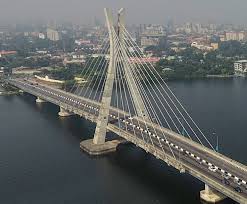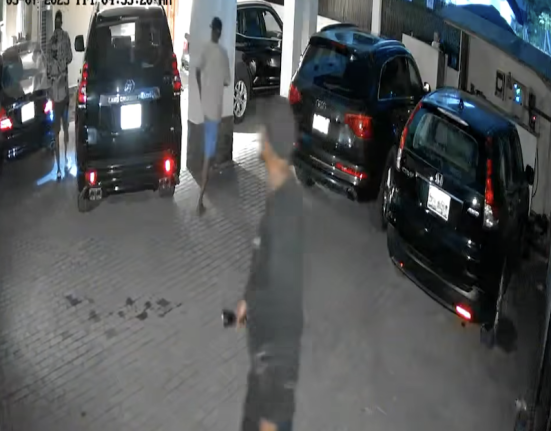If you are considering investing in land in Lagos this year, Lekki, Ajah, and Ikoyi are likely to dominate your search. These three areas are not only popular but have also emerged as key players in the city’s ever-evolving real estate landscape. Whether you are a first-time buyer or an experienced investor looking to expand your portfolio, understanding the current land prices in these locations is crucial to making informed and profitable decisions.
The Lagos real estate market has undergone significant changes over the past few years. What was once an affordable market has now shifted dramatically, and prices have increased exponentially. While the days of acquiring land in Lekki for a fraction of its current price may be behind us, opportunities remain for those who can spot them early and act swiftly.
Lekki, Ajah, and Ikoyi have risen in prominence for good reasons, and 2025 marks a year of continued growth for these areas. As Lagos grows into a regional economic powerhouse, infrastructure projects, a rising population, burgeoning tech hubs, and a steady influx of both local and international investors have transformed these locations into highly sought-after hotspots.
Once seen as a quiet, underdeveloped area, Lekki is now home to major infrastructural projects, including the Lekki Deep Sea Port and the Dangote Refinery. These developments, along with several luxury residential estates, have completely transformed the area. In 2025, Lekki is a thriving commercial and residential hub, and land prices reflect this change. Areas like Lekki Phase 1, Chevron, and the Lekki Free Trade Zone now see land prices ranging from ₦500,000 to ₦1.2 million per square meter, depending on factors such as proximity to the expressway, title, and infrastructure quality. The Ibeju-Lekki corridor, once considered far-flung, has also experienced significant price hikes, with land plots now priced between ₦10 million and ₦25 million per plot, depending on their location and development stage.
Ajah, located just a short drive away from Lekki, is quickly gaining popularity with investors looking for more affordable options. While not as expensive as Lekki Phase 1, Ajah has experienced an increase in demand due to improved road access and urban sprawl. In 2025, land prices in Ajah typically range between ₦20 million and ₦60 million per plot, depending on factors like title, proximity to major landmarks, and the specific estate in question. While the days of snagging cheap land in Ajah may be over, investors who know where to look can still find viable opportunities before prices climb even higher.
Ikoyi, meanwhile, remains an elite and high-stakes market. Land prices in Ikoyi are among the highest in Lagos, making it a more difficult entry point for many investors. Prices in this upscale area can range from ₦1.5 million to ₦3 million per square meter, particularly in prime locations like Banana Island, Bourdillon, and Osborne Foreshore Phase 2. These areas continue to attract high-net-worth individuals, diplomats, and top-tier investors, all of whom are willing to pay a premium for the prestige and long-term capital appreciation that Ikoyi offers.
The differences in land prices across these three locations can be attributed to several factors, chief among them being value. The term “value” is multi-faceted and encompasses considerations such as title (a plot with a Certificate of Occupancy or Governor’s Consent will command a higher price), infrastructure, security, social class, and future potential. For example, a plot in Lekki with good road access, modern amenities, and solid documentation will naturally be more expensive than a plot in Ajah with less infrastructure and fewer development opportunities.
The government’s ongoing road expansion projects and the rising number of luxury developments in these areas also contribute to price fluctuations. In 2025, buyers are not just paying for the land itself, but for the lifestyle, convenience, and investment potential that the land represents. A well-located plot near the Lekki Conservation Centre, for instance, will attract a premium because of its visibility and commercial potential.
Despite the rising prices, investing in land in Lekki, Ajah, or Ikoyi in 2025 is still a good decision, but it must be done strategically. Waiting for the “perfect time” could result in missing out on valuable opportunities. There are still some underpriced areas in Lekki, particularly around the Free Trade Zone and Eleko junction, which may be overlooked by some investors. Ajah, on the other hand, remains an ideal choice for middle-income earners who want a mix of affordability and comfort, while Ikoyi, though expensive, offers unrivaled capital appreciation and exclusivity that few other areas can match.
It’s important to be cautious in today’s real estate market, but this caution should not prevent you from acting. The market still has its share of scammers, and ensuring proper title verification is paramount. However, technology has made property transactions more transparent and safer than ever before, making it easier for investors to avoid common pitfalls.
The real estate market in Lagos is not for the faint-hearted, but those who invest wisely in Lekki, Ajah, and Ikoyi today will likely reap significant rewards in the future. Just as those who purchased land in Sangotedo a few years ago are now enjoying considerable returns, the investors of today will be able to tell similar success stories in the years to come.
Real estate is more than just a transaction—it’s an investment in the future. Whether you’re looking to develop a property or simply land-bank for future growth, understanding the dynamics of land prices in Lagos’s top locations will help you make sound investment decisions in 2025. And five years from now, you could be the one telling a story of smart investment and financial success.



